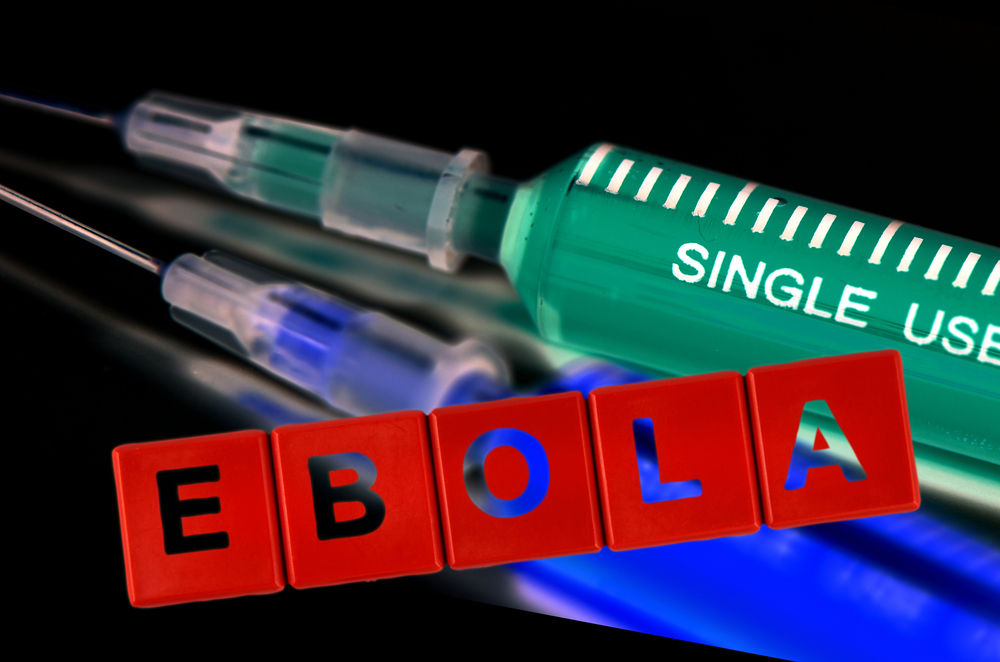
The U.S. Food and Drug Administration (FDA) announced Thursday the approval of a vaccine created by Merck & Co., Inc. as a preventative measure against the Zaire strain of the Ebola virus in individuals 18 years of age or older.
In 2018, the World Health Organization and the Democratic Republic of the Congo (DRC) began using Ervebo, the first FDA-approved Ebola vaccine, under an expanded access program.
“Ebola virus disease is a rare but severe and often deadly disease that knows no borders,” said Dr. Peter Marks, director of the FDA’s Center for Biologics Evaluation and Research. “Vaccination is essential to help prevent outbreaks and to stop the Ebola virus from spreading when outbreaks do occur. The FDA’s approval of Ervebo is a major advance in helping to protect against the Zaire ebolavirus as well as advancing U.S. government preparedness efforts. The research approach used to study the effectiveness and safety of this vaccine was precedent-setting during a public health emergency and may help create a model for future studies under similar circumstances.”
Ebola — or Ebola virus disease — is a contagious, deadly disease that can be transmitted from blood contact, bodily fluids, infected tissue, and contaminated materials. Documented since the 1970s, Ebola outbreaks can come from animals or other infected people. While initial symptoms can be sudden, they also tend toward the mild, but can rapidly evolve into vomiting, diarrhea, rash, impaired kidney and liver function, or bleeding. It spreads quickly and can be fatal.
While cases of Ebola virus disease are rare in the United States, those that have occurred have been the result of individuals infected while traveling in high-risk countries as well as health care workers treating Ebola patients. In recent years, several African countries have been deeply affected by the disease. The largest outbreak ever spread across Guinea, Liberia, and Sierra Leone from 2014 to 2016 and ended with more than 28,000 cases and 11,000 deaths. The second-largest outbreak ever recorded has been ongoing in the DRC since last year. As of this week, the DRC’s Ministry of Health reports the Ebola outbreak has led to 3,351 cases and 2,211 deaths.
The approval of Ervebo was supported by a study conducted in Guinea during the 2014-2016 outbreak, and it has been used as an investigational vaccine in the DRC.
In the Guinea study, the Ervebo vaccine provided 100 percent Ebola prevention capabilities with symptom onset greater than 10 days post-vaccination. For those treated immediately, no cases of Ebola with symptom onset greater than 10 days emerged. Only 10 cases arose among those delayed treatment by 21 days.
The success of the single-dose vaccine was further verified by studies in Liberia, Sierra Leone, Canada, Spain, and the United States, spanning approximately 15,000 patients in all. Most patients suffered only aches, pains, and swelling as side effects.
“The first-ever FDA approval of a vaccine for the prevention of Ebola is a triumph of American global health leadership,” Department of Health and Human Services Secretary Alex Azar said. “From research and development to support for manufacturing, the U.S. government played an integral role in advancing the development of Merck’s vaccine. The newly approved vaccine, as well as investigational therapeutics and other tools supported by the U.S. government, is playing a huge role in saving lives during the current Ebola outbreak in the Democratic Republic of the Congo.”




